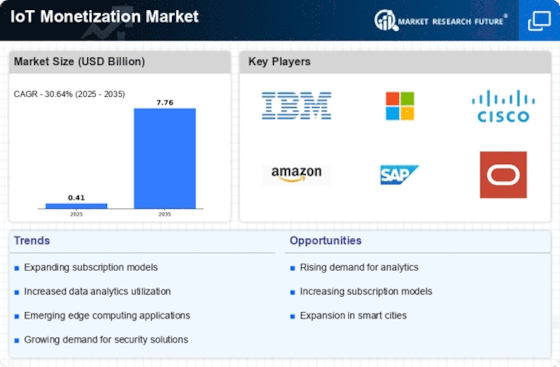Market Share
IoT Monetization Market Share Analysis
In such a dynamic Internet of Things (IoT) Monetization Market, firms employ various market share positioning strategies in order to get a competitive advantage and cash on the flourishing opportunities within the industry. One common approach is differentiation, where companies differentiate their IoT monetization solutions from rivals by offering unique features or tailored solutions for specific industries needs. Another important strategy is cost leadership, which is when enterprises strive to become the most cost-effective option in the market. Such positioning makes it possible for organizations to position themselves as affordable yet dependable IoT monetization providers by streamlining their processes, economies of scale, and efficient technology adoption. This targets a broad customer base, which includes those seeking budget-friendly alternatives without compromising on quality. Coordinated efforts and organizations are important to many companies' positioning strategies for market share in the IoT Monetization Market. Companies can exploit this through strategic alliances with other players, build on their inherent strengths, expand their services, and enhance overall value. Additionally, a focus on customer-driven approaches is important in the IoT Monetization Market. As such, companies that prioritize customer satisfaction, offer excellent support, and continuously adapt their solutions based on consumer feedback could be strongholds for gathering relationships. This helps keep existing customers while attracting new ones through positive word of mouth and reputation building. Another crucial strategy is adopting a regional market focus. Organizations may choose to concentrate on specific geographical areas where they have developed core competencies and tailor their offerings accordingly to meet the unique needs of these markets. Furthermore, taking a forward-thinking approach to technology trends is critical for market share positioning in the IoT Monetization Market. Companies that stay ahead by embedding emerging technologies like artificial intelligence (AI), machine learning (ML), and blockchain into their solutions attract customers seeking innovative and future-proof monetization strategies. This makes them frontrunners in the industry who lure clients dedicated to cutting-edge solutions.


















Leave a Comment